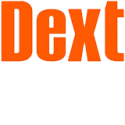10 Tips That Will Improve Budgeting and Forecasting for Your Business...

Budgeting and forecasting are essential to accurately plan for your business’ fiscal year. Here are a few tips to help you create an effective plan that will help you improve these processes and achieve your financial goals moving forward.
Be Flexible when Budgeting & Forecasting
When planning your budgets and forecasts, it is important that you allow room for change. As the year goes by you will notice that detailed forecasts and budgets are not useful-- things change and you have to be able to adapt. If you base all of your decisions on assumptions you made earlier in the year you could find yourself coming head-to-head with faulty and expensive consequences. Be cautious about holding your employees to standards centered around expired information. It is counterproductive and can be frustrating for you and them both. Flexibility in your budgeting and forecasting allows for more accuracy and more satisfying outcomes in your business.
Implement Rolling Budgets & Forecasts
Rolling forecasts and budgets can be modified to today’s results instead of yesterday’s predictions. Using this process, forecasting is done quarterly instead of annually. Each quarter forecasts are broader as they will soon be updated another time. Rolling forecasts give you the opportunity to align your budget with the plan you created while helping you create more accurate projections.
Create a Plan & Budget it
Create a plan, put it in place, and mold your budget around it. Budgeting to your plan ensures that spending decisions are being made based on actual revenue instead of opportunities that excessive spending may or may not lead to. Instead of spending without the fear of consequences, budgeting to your plan insists that you deal with the potential impact that your expenditures have on your business. By implementing this method of budgeting will help you address opportunities that were not a part of your initial budget.
Communicate Early & Frequently
Forecasting and budgeting directly affects all aspects of your business, therefore you should keep a continuous open line of communication with each department throughout the entire process and help you minimize problems and form an alignment between your business’ operational and organizational strategies.
Include Every Person on Your Team
Effective budgeting and forecasting requires a team effort. By working together, you can ensure that all departments and units have a clear understanding of their needs. In addition to employees in your finance department, having people keeping an eye on your departments can provide you with the data needed to make more accurate predictions and establish realistic budgets. Using your entire team will provide you with multiple perspectives on your business’; current stance and where its path will lead.
Set Clear Goals
Forecasting was designed to predict your company’s financial future. It allows you to make better decisions for your business and understand how those decisions will affect your business before you implement them. If you are unsure about your overall goals for your business, then your inability to accurately forecast your business’ financial future can lead to major faults. This is why it is important to have a clear understanding of what is driving your forecasting predictions-- they aren’t random guesses not centered around the goals you have for your business.
Consider Obstacles That Might Come in the Way of Your Business & Your Goals
It is impossible to plan for everything but you likely have an idea of some obstacles that may alter your original forecast and budget. Take the time to review your external market and any economic trends that could have a negative impact on your business. A rolling forecast is useful when it comes to being on top of changes that could have a major impact on your business. Essentially, rolling forecasts allow you to make changes when necessary based on new data. This gives you the opportunity to make decisions based on what is currently happening., not what happened a year ago.
Keep Track of Everything
Account for everything regarding budgeting and forecasting for the upcoming fiscal year. Whether it is a potential buyout of one of your competitors or needed supplies, do not underestimate how important even the smallest details and the impact they could potentially have on your company’s financial health. After you have established a budget, allow for forecasting that takes into consideration the many potential scenarios that could arise. Focus on market trends, client behaviors, and what is going on with your competition as your business forecasts are being finalized.
List Profit and Cash Flow Goals
All good budgets have profit targets and cash flow targets as the bottom line measures are extremely different and require different attention to maintain them. If you fail to keep track of these two metrics in your business and how accurate and useful the budget you created will be. To avoid underachievement, establish realistic targets for both your cash and profit flows.
Say Goodbye to Excel
Avoid using excel or other spreadsheet software when doing your budgets and forecasts. Instead use a planning software as they can make the process simpler and less time consuming. Cloud-based systems are rapidly becoming the standard for the financial areas of businesses, not just for bookkeeping purposes. By implementing them, you will be rewarded with more flexibility and better security and cost savings, than manual spreadsheets. These systems will allow you to come up with accurate predictions and budgets sooner with less errors.
Contact us (859-344-6456) for a consultation!
--
James E. Wilson, CPA is a team of professionals provide innovative financial solutions designed for today’s business owner. Our advisors treat each client relationship with the loyalty and care required to properly advise you now and well into the future.
Learn more



